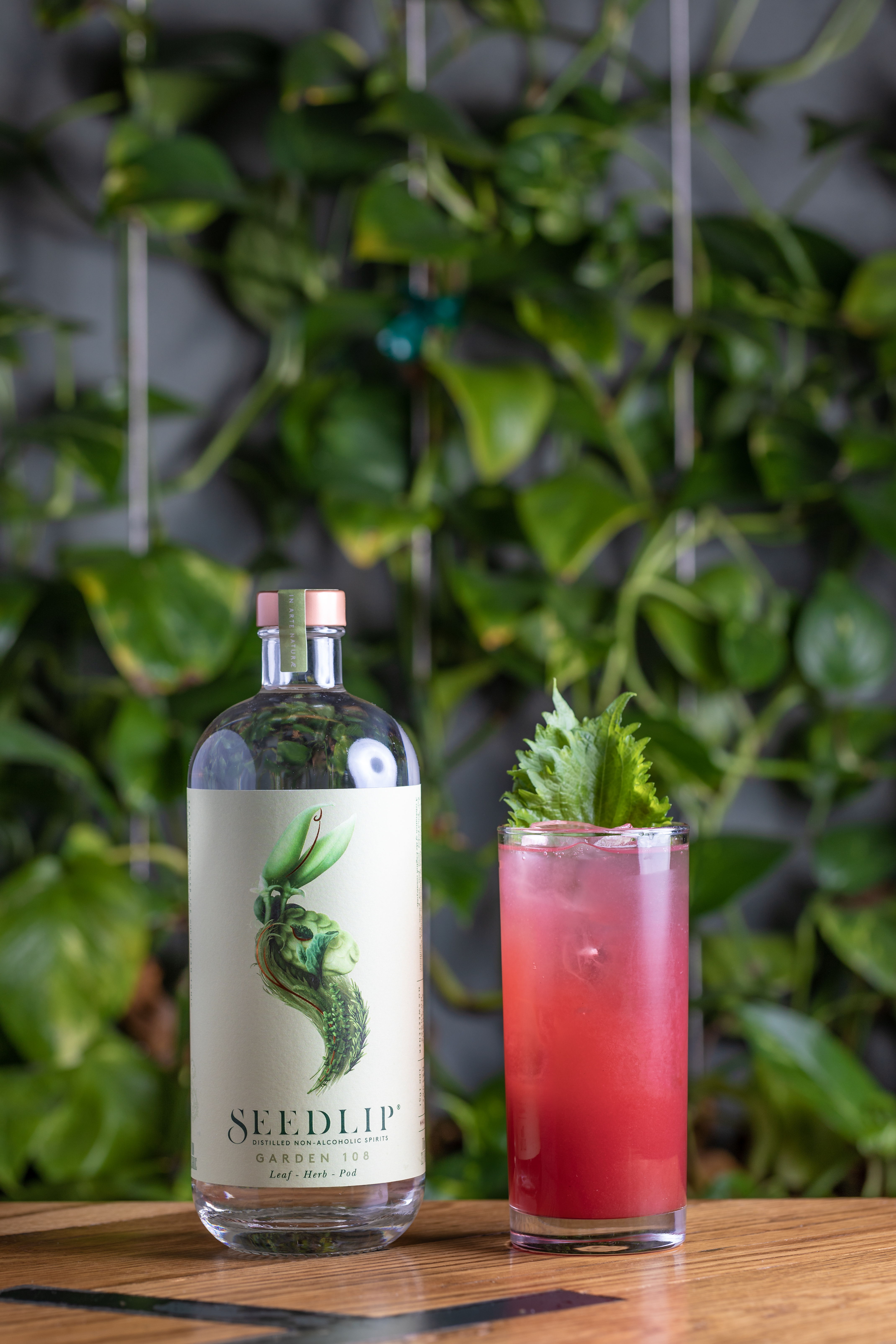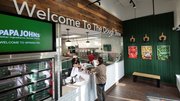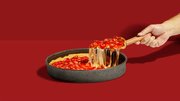Article
Why pizza brands should pay attention to the buzz about non-buzz-producing drinks
Is non-alcohol drinking really a "thing"? Well, if Coke, Gordon's or some of the world's best chefs have anything to say about it, it is. Here's why pizza brands -- especially those on the higher-end of the price spectrum might want to pay heed to this developing beverage category.

February 20, 2019 by S.A. Whitehead — Food Editor, Net World Media Group
We started to see an inkling of the low- and no-alcohol trend in restaurants some time ago when it became clear that the youngest generation of adults — Gen Z — shows some strong leanings away from the party-for-party's-sake lifestyle of most previous generations. But the movement toward part- or full-time abstention has continue and picked up steam, and now is, well, utterly hip. It makes this boozeless trend one that restaurant brands now seriously need to pay attention to in some form or another.
In fact, if you need still further proof that this trend is happening, you need look no further than that mega-brand of the 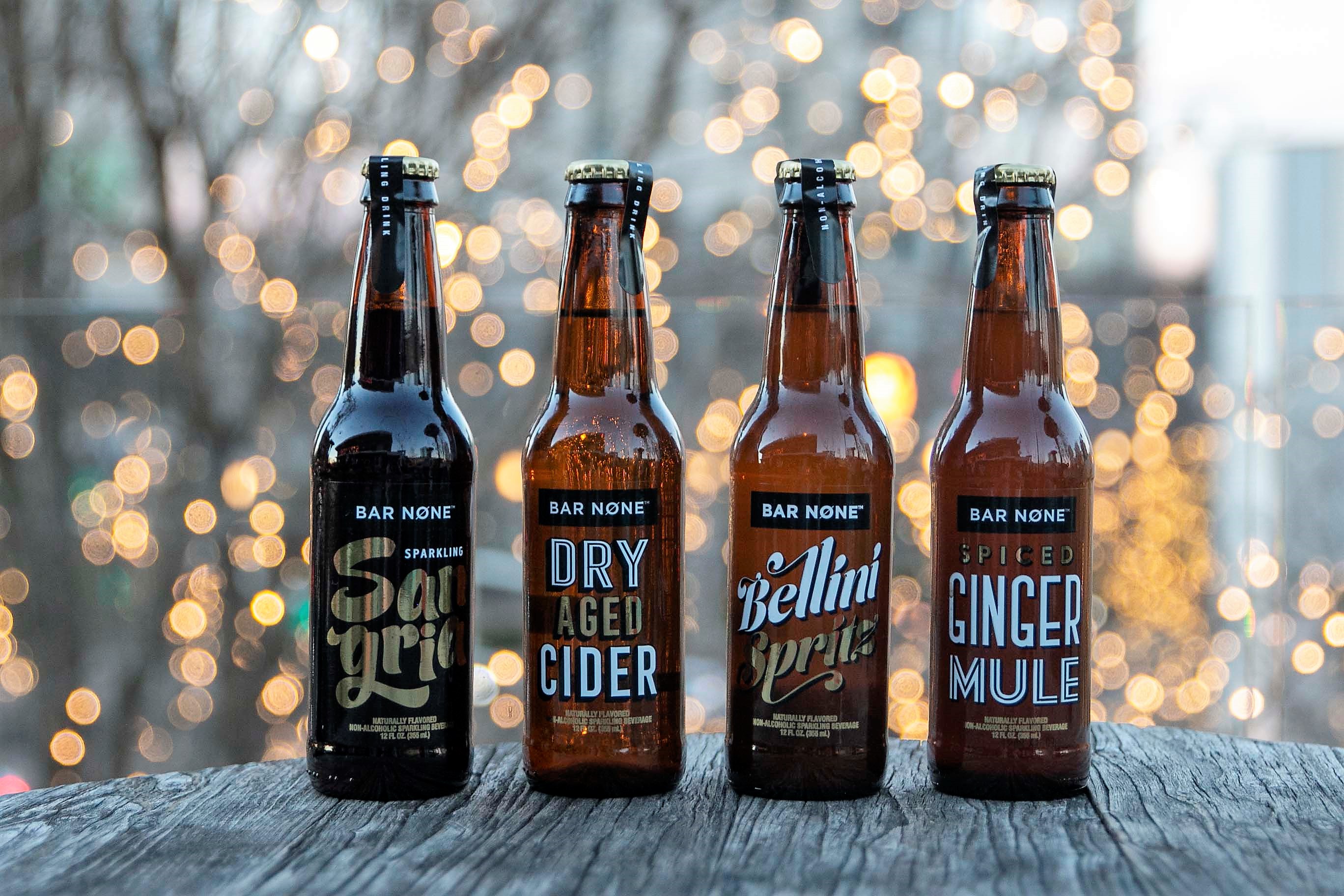 liquid refreshment industry, Coca-Cola, which recently launched its very own line of what the beverage behemoth calls "cocktail-inspired nonalcoholic beverages," under the Bar None label.
liquid refreshment industry, Coca-Cola, which recently launched its very own line of what the beverage behemoth calls "cocktail-inspired nonalcoholic beverages," under the Bar None label.
Currently, the four Bar None varieties of spiced ginger mule, Bellini spritz, dry aged cider and sangria are only available in Coke's Atlanta home base, but the drinks can be ordered online. As you might well tell from their names, these are not just your typical club soda-and-flavoring types of drinks for alcohol abstainers. Rather they are very much bar-inspired flavors with premium, on-trend ingredients that Coke said in their press information about the line are designed to appeal to beer, wine and cocktail drinkers.
That's key, because that's what set these beverages apart from their "just anything non-alcoholic the bar has" sisters. These are created as "adult" drinks, with little in the way of heavy syrups, sweeteners or hit-you-over-the-head-style flavorings. Instead they're all in the relatively lower-calorie realm of 70 to 130 calories, and flavored with natural juices or in some cases cane sugar.
Alcoholic drink producers 'pile on' too
But lest you think that's where this trend starts and ends, think again. This category of libations has the attention of some of the biggest names in distilling, including but not limited to Ceder's and Gordon's non-alcohol gins, Stryyk's Not Rum and Not Gin, and the one that seems to be taking all the critics by storm, Seedlip.
These U.K.-bottled "non-alcoholic spirits" are the brainchild of British entrepreneur, Ben Branson, and they capitalize on the world's growing affection for all things pure and natural, as embodied in this case in Seedlip's three varieties of Spice 94, Garden 108 and Grove 42.
Bye-bye kiddie cocktails
These potables are all nuanced bases for mixed drinks that combine a shot of the "spirit" with a mixer, just like other cocktails. In fact, in Seedlip's case, the brand actually urges customers to drink it mixed, since the flavors tend to almost bloom when beverages like tonic, soda or ginger ale are combined with it.
After tasting the varieties myself, along with sharing it with some of my fellow editors here at our parent company, Networld Media Group, I learned that there are two reactions, at least among those who normally like their drinks full of alcohol-containing spirits. Those include:
- "What's the point?" These are likely the drinkers who will not be won over by the finer points of non-alcoholic spirits. Some said they just didn't like Seedlip cocktails' flavor, others didn't like the fact there was no potential "buzz" attached.
- "That's really kind of nice." These are the folks who can take or leave a boozy drink, and invariably they commented that the drinks were light, nuanced and very appealing with — believe it or not — a slight burn after putting down a few sips.
When I interviewed the folks at Seedlip, I found that was pretty much in line with their experience in Europe, where the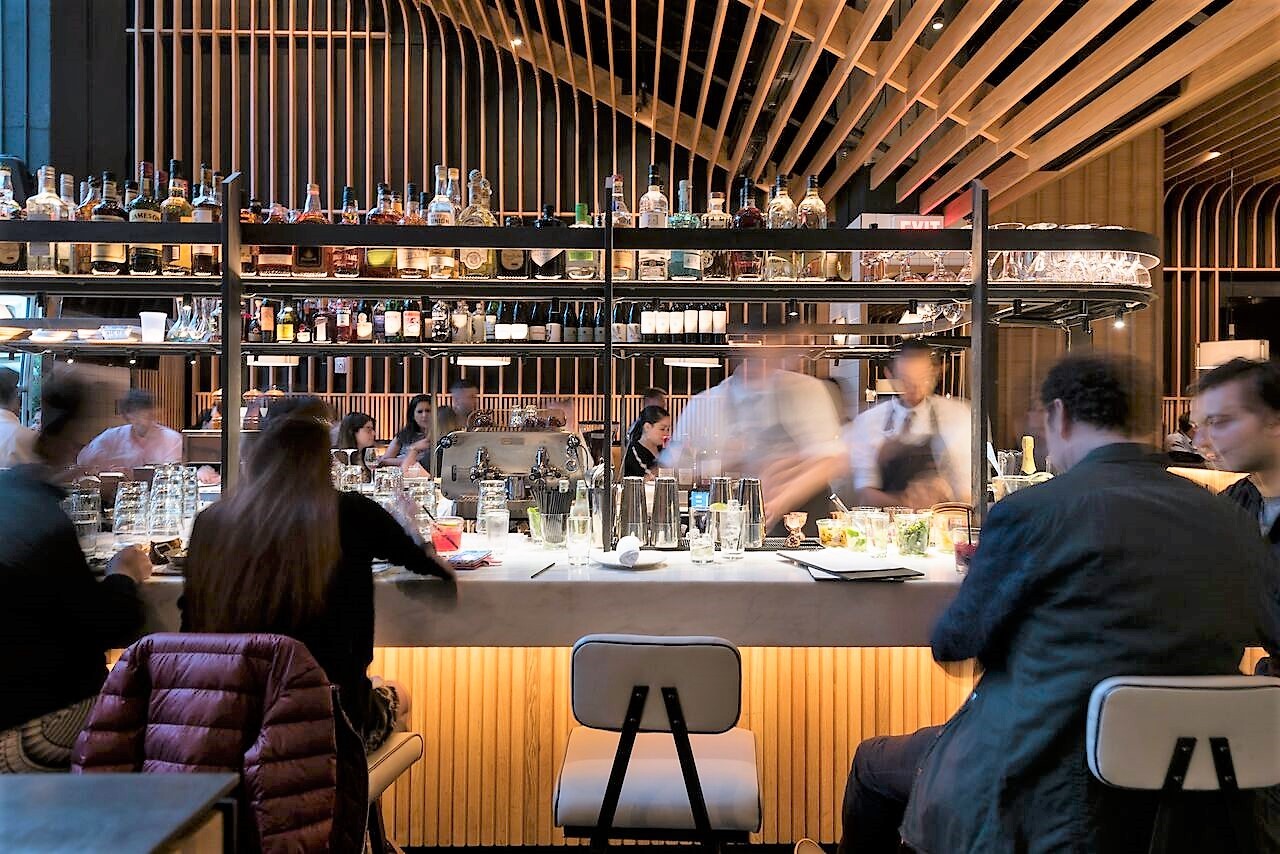 brand is featured in numerous relatively high-end bars, as well as at the smattering of U.S. restaurants now carrying the distillation, like Bouqueria in New York City.
brand is featured in numerous relatively high-end bars, as well as at the smattering of U.S. restaurants now carrying the distillation, like Bouqueria in New York City.
"We have a lot of guests who choose not to, or can't drink, and so we wanted to create options that ensured everyone could have a unique, elevated experience when it comes to our beverage offerings," said Bouqueria Beverage Director Kieran Chavez.
"We've definitely seen an increase in popularity over the years, especially as we've strengthened our partnership with Seedlip. Zero-proof cocktails printed on the menu, as opposed to just verbally offered, have been incredibly well received."
Chavez said he really has taken to the use of teas and herbs with Seedlip's varieties to enhances their complexity, including combining elements like chamomile, lime leaf, lemongrass and even orange-apricot marmalade and cinnamon with varieties.
He said the drinks are popular with all kinds of customers at all hours of day, but especially at lunch to "provide something a little different during a time of day when many people aren't drinking."
Seedlip also capitalizes on the anti-additive trend among consumers, with its pledge to capture the "true characters in complex blends," without added sweeteners. In fact, the company said that a typical shot of its products ring has no calories per 50-milliliter serve.
From farm to pour
Meanwhile, it's born-on-the-farm personality is enhanced by the story behind each variety, like that of the earthy Garden 108, which starts with peas from Branson's farm that are distilled in small-batch copper stills over six weeks.
"I spent two years working with growers, distillers and botanists to develop a coveted 6 week maceration, copper pot distillation and cold filtration process," Branson said in an interview with this website.
In fact, he said he really didn't start out with those first distillations to give birth to a business, rather he was just kind of a home gardener puttering with produce when he stumbled upon an infatuating tome on distilling substances.
"While looking into different herbs to grow at home I came across a book online, written in 1651 called 'The Art of Distillation.' It documented distilled herbal remedies that were non-alcoholic. Out of curiosity I bought a little copper still and began experimenting in my kitchen with herbs from (the) garden.
"It was only when I began to understand that the world and how we're drinking is changing that the mission to solve the dilemma of what to drink when you're not drinking, invent the world's first distilled non-alcoholic spirits and continue my family's 300-year legacy of working with the land, came together as a business idea!"
Seedlip's three current varieties began with the creation of Spice 94, which blends Jamaican allspice, cardamom, citrus peel, with oak and cascarilla bark distillates to create a product Branson recommends mixing with ginger ale and serving over ice with a grapefruit twist.
The two other Seedlip varieties include the mélange of bitter, mandarin and blood oranges, with lemongrass, ginger and lemon, called Grove 42, and the previously mentioned Garden 108 with herb, pea and hay distillates with rosemary and thyme, spearmint and hops.
All are what Branson said are a combination of "The Art of Distillation" herbal remedies, with the flavors of his farm and a kind of free-ranging approach to beverage creation that isn't confined by a stipulation to "imitate alcohol."
"We deliberately didn't use juniper (the base for gin) or attempt to imitate alcohol, as this just leads to disappointment and a compromise," he said.
Where do high-end non-alcoholic drinks fit?
When it comes to restaurant use of these substances — pizza or any other category — it's helpful to know that there's nothing lowbrow about these drinks, which typically range in price from $20 to $30 a bottle depending on the manufacturer.
In fact, the Seedlip brands alone have been lauded by the likes of a number of Michelin-starred chefs and featured in high-end bars and restaurants like Eleven Madison Park, The French Laundry and The Dead Rabbit.
Branson said the company's products are available in about 25 cities globally and it has more than 6,000 accounts, including Southern California Whole Foods Market locations, as well as those in Scottsdale, all 12 Southern California Bristol Farms locations and in Oracle in Tucson.
Customers and restaurants that tend to hang on to this brand's varieties are, according to Branson, generally people take a great deal of care about what they eat and drink, as well as where it comes from and who's behind it. That includes those who can't drink, like pregnant women, designated drivers and yes, even recovering alcoholics, as well as the increasing number of people who just choose not to drink some or all the time.
"I think everyone can relate to being offered a boring lime-and-soda or feeling totally let down if they get offered a sweet fruity mocktail," he said.
Seedlip was on the early wave of the non-alcoholic drink trend when it launched in late 2015 at London's storied Selfridge's department store with 1,000 handmade bottles and the first three batches that sold out in just over 3 weeks online.
About a year ago, the company launched in the U.S. in health-smitten, foodie cities, like Los Angeles and San Francisco. But the brand is also in New York City and Washington D.C. with emerging markets in states like Arizona, as well as cities like Las Vegas and Seattle. And in all those places, are restaurants that put a premium on food and drink innovation and transparency, like Boqueria, and possibly even a few pizza brands who see the value in a good drink, whether it's "buzz" worthy or not.
"The demand has been overwhelming, the timing ideal and the hard work so far absolutely worth it as we demonstrate a new category and approach to thinking about what we drink," Branson said.
"I hope and expect alcoholic cocktails to be around forever and hope the scales begin to balance (and) as a nation we lose our repressed 'Why are you not drinking!' attitude and ... non-alcoholic options are simply given the same due care and consideration ... not relegated to the back page of the menu. ... Alcoholic cocktails challenge people's palates, so why shouldn't non-alcoholic?"
Feature photo: Seedlip
Inset photo 1: Coca-Cola
Inset photo 2: Liz Clayman for Bouqueria
Inset photo 3: Seedlip
About S.A. Whitehead
Pizza Marketplace and QSRweb editor Shelly Whitehead is a former newspaper and TV reporter with an affinity for telling stories about the people and innovative thinking behind great brands.
